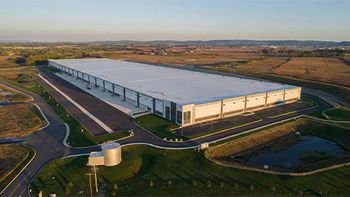
- Pharmaceutical Commerce - July/August 2009
'Active' and 'intelligent' pharma packaging are on a 12.9%/yr growth curve through 2013
Moisture control, time-temperature monitoring are among the application areas being driven by biotech products and others, says Freedonia Group
Most types of pharma packaging are dumb and passive because that’s all they need to be, but there is a growing category of active and intelligent packaging, says market researcher Freedonia Group (Cleveland, OH). This category is currently worth $142 million in the US (2008), and is projected to rise by 12.9%/yr to $260 million in 2013. Freedonia’s report, Active & Intelligent Packaging, attributes the growth to factors including the US population’s growing healthcare needs, decreases in the cost of components like time-temperature indicators, and increasing use of biotechnology drugs with high stability requirements.
Moisture-control active packaging, currently the largest category analyzed in the report, is forecast to grow at a relatively modest 6.2%/yr in pharma, from $88 million in 2008 to nearly $120 million in 2013, driven by growth in moisture-sensitive pharmaceuticals such as AIDs and cancer drugs. There is also a smaller category of oxygen-scavenging or odor-control packaging.
In contrast, the intelligent packaging market is expected to leap 22%/yr in pharma, from $41m in 2008 to about $110m in 2013. The category includes packages such as “talking bottles” (or caps or labels) that remind patients to take their medicine, or unit-dose packages (blister cards) that include various types of active reminding. Also includes are time-temperature indicators for temperature-sensitive vaccines and biotech drugs. In the past, acceptance of these types of products has been hindered by their high cost as well as a lack of regulatory requirements, the report says.
The Freedonia report, available for purchase at $4,700, also analyzes active and intelligent packaging for food and beverage applications; the overall market is worth $1.26 billion currently, and will grow at an 8.3% rate.
Articles in this issue
about 16 years ago
The Rise of 'Companion' Diagnostics for Specialty Pharmaceuticalsabout 16 years ago
Our Readiness for the Attack of the Flu Bugabout 16 years ago
The State of the Industry in Product Securityabout 16 years ago
The Business Value of Brand Protectionabout 16 years ago
MeadWestvaco Readies Portable Medication Packagingabout 16 years ago
Manufacturing IT Association Sponsors Industry-Wide Performance Surveyabout 16 years ago
Oncology Drugs Add Promise, Stresses to Healthcare Deliveryover 16 years ago
On-Demand Digital Printing Rewires Pharma PackagingNewsletter
Stay ahead in the life sciences industry with Pharmaceutical Commerce, the latest news, trends, and strategies in drug distribution, commercialization, and market access.




